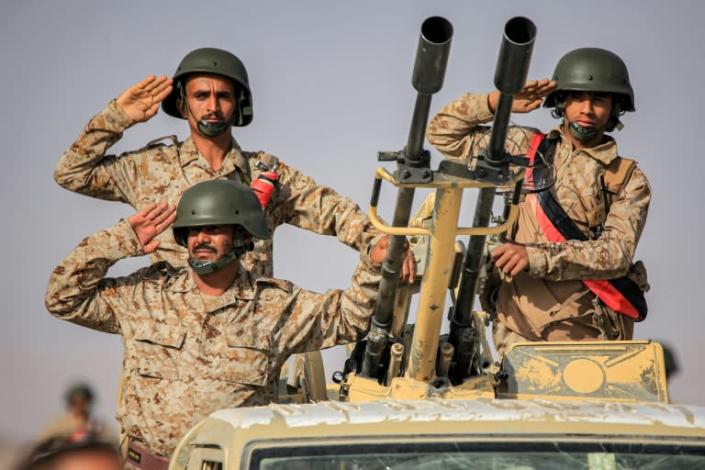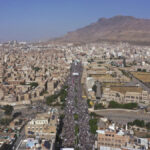
Yemen’s warring parties agreed to extend a four-month long truce for a further two months just hours before it was due to expire, the United Nations announced Tuesday.
Yemen has been gripped by conflict since the Iran-backed Huthi rebels took control of the capital Sanaa in 2014, triggering a Saudi-led military intervention in support of the beleaguered government the following year.
But a truce came into effect on April 2 and was renewed from June 4, providing a rare respite from violence for much of the country and alleviating some of the suffering.
The latest extension, running from August 2 to October 2, “includes a commitment from the parties to intensify negotiations to reach an expanded truce agreement as soon as possible,” the UN special envoy on Yemen, Hans Grundberg, said in a statement.
Hundreds of thousands have died, directly from fighting as well as indirectly, and millions have been displaced in what the UN calls the world’s worst humanitarian crisis.
“The main objective of the current truce continues to be to provide tangible relief to civilians and to create a conducive environment for reaching a peaceful settlement to the conflict through a comprehensive political process,” Grundberg added.
– ‘Progress slowed’ –
More than two thirds of Yemen’s 30 million people need humanitarian aid, a UN official said last month, and the country has been pushed to the brink of famine.
Under the truce, commercial flights have resumed from the rebel-held capital Sanaa to Jordan and Egypt, while oil tankers have been able to dock in the lifeline port of Hodeida, also in Huthi hands.
The extension of the truce was welcomed Tuesday by aid agencies working to support those impacted by the conflict.
“Millions of Yemenis are suffering due to rocketing food prices, a lack of health and other essential services and dwindling economic opportunities,” said Abdulwasea Mohammed, from the aid agency Oxfam.


“Now is the time for all parties — and the international community — to work towards a lasting and inclusive peace that guarantees the lives, dignity and freedom of the Yemeni people.”
On Monday, 30 aid agencies working in Yemen had said that since the truce first came into force in April 2, “reports of civilian casualties have dropped significantly.”
The aid groups, including Yemeni and international organisations, urged “all parties to the conflict to adhere to and extend the agreement to protect civilians” across the country.
But Erin Hutchinson, Yemen country director for the Norwegian Refugee Council, sounded a note of caution.
“After seeing swift and decisive action towards the success of the truce in the first months, progress towards meeting all of its elements has slowed,” Hutchinson said.
“We hope this two-month extension will allow for the reopening of roads linking cities and regions, enable more displaced people to return to their homes safely, and ensure humanitarian aid can reach people who have been out of reach for far too long.”
bur-aem/pjm/dwo




